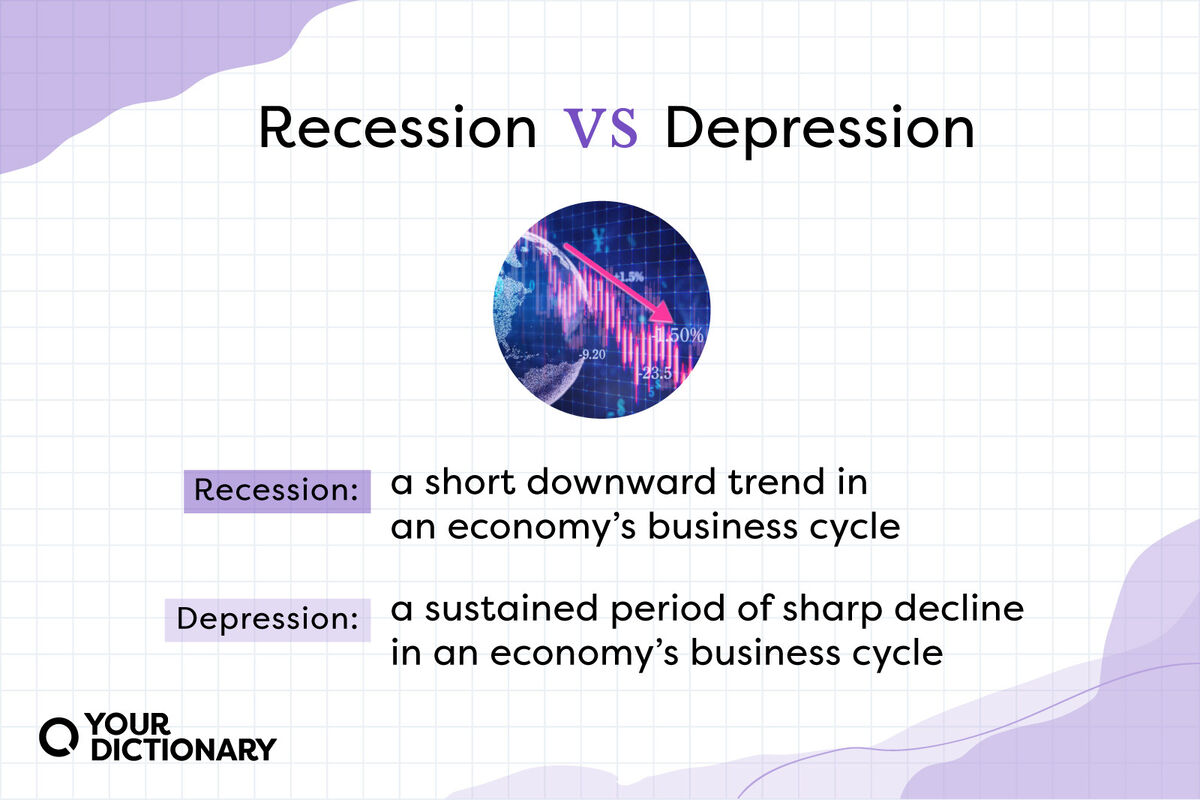
If you were in the workforce (or entering the workforce) during the Great Recession of 2008 or the Covid-19 Recession of 2020, you know firsthand how much an economic recession can affect your personal finances. But while there have been 11 major U.S. recessions in the last century, there’s only been one depression — and its effects were so staggering that they impacted the global economy itself. So what’s the difference between a recession and a depression, and how do you know if you’re in one?
How Is a Recession Different From a Depression?
While the economic definitions of a recession or depression may differ, most economists agree that these economic periods differ in general ways:
|
Recession |
Depression |
|
|
Out of Business |
Small companies |
Large companies |
|
Banks |
Small banks fail |
Global banks fail |
|
GDP |
Gradual decline |
Sharp decline |
|
Economic Activity |
Slows (a few months to a year) |
Severely slows (over several years) |
|
Wages |
Dip over time |
Fall quickly |
|
Stock Market |
Prices fall |
Prices plummet |
|
Unemployment |
Rises (up to 10%) |
Rapidly rises (over 10%) |
A Recession Is a Downtrend
The word recession comes from the Latin recedere, meaning “to go back.” It can refer to any act of receding or moving away, but economically, recession describes a period of temporary economic decline (usually two quarters or more of a falling GDP, or Gross Domestic Product) that affects both a country’s larger economy and individuals’ ability to earn a living.
Historical Examples of Recessions
People in their 30s and 40s have experienced three or four major economic recessions in their lifetime. However, if you’re in your 50s, 60s or 70s, you probably remember at least four more than that. Prominent economic recessions over the last century include:
- The Roosevelt Recession (1937-1938)
- The Union Recession (February-October 1945)
- Recession of 1949 (1948-1949)
- The Korean War Recession (1953-1954)
- The Eisenhower Recession (1957-1958)
- The Nixon Recession (1969-1970)
- The Oil Crisis Recession (1973-1975)
- Early 1980s Recession (1980-1982)
- The 9/11 Recession (8 months in 2001)
- The Great Recession (2007-2009)
- The Covid-19 Recession (2020-2022)
A Depression Is a Much Deeper Downtrend
From the Latin deprimere (“to press down”), the word depression in economics describes a much more impactful and devastating event. While a recession is marked by a slowdown of economic activity, a depression may involve a severe reduction or even a complete halt of trade and commerce. In drastic cases, one country’s economic depression can impact the entire world for years.
Historical Examples of Depressions
The Great Depression, which began when the stock market crashed in October 1929, was the last American (and world) depression in history. However, several depressions occurred beforehand, challenging the country’s new and growing economy. Major depressions in American history include:
- Depression of 1807 (1807-1810)
- The Post-Napoleonic Depression (1815-1821)
- The Long Depression (1873-1879)
- The Great Depression (1929-1933)
Managing Your Money — and Your Economic Lingo
Avoid your own periods of economic uncertainty with more guides to financial vocabulary, including: